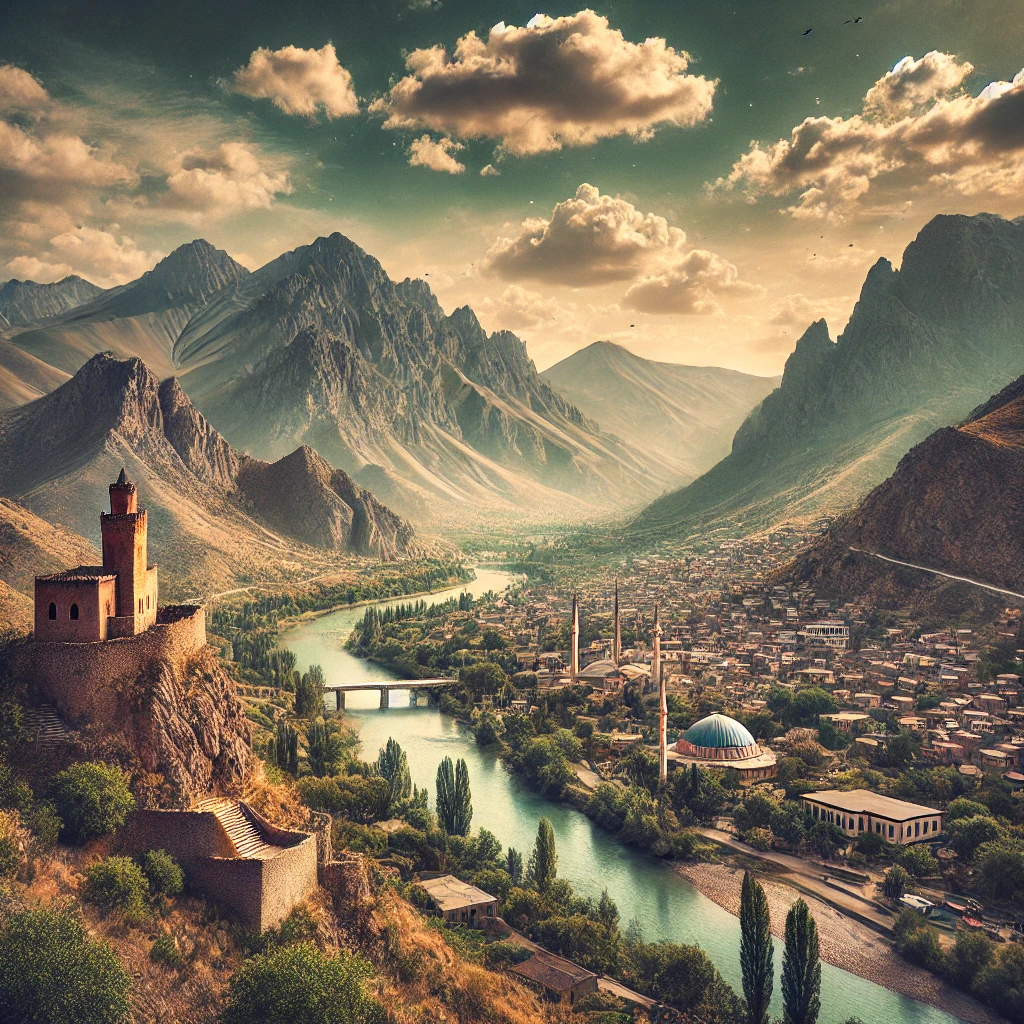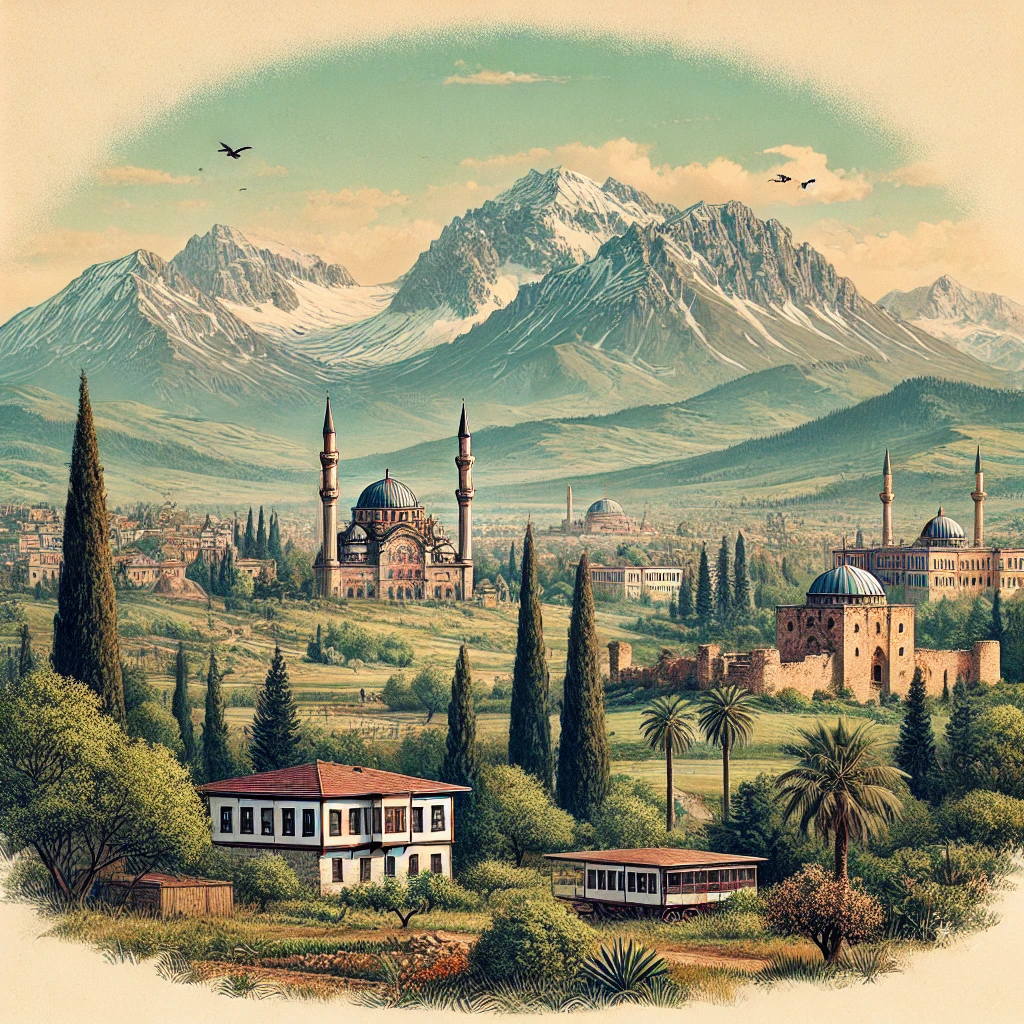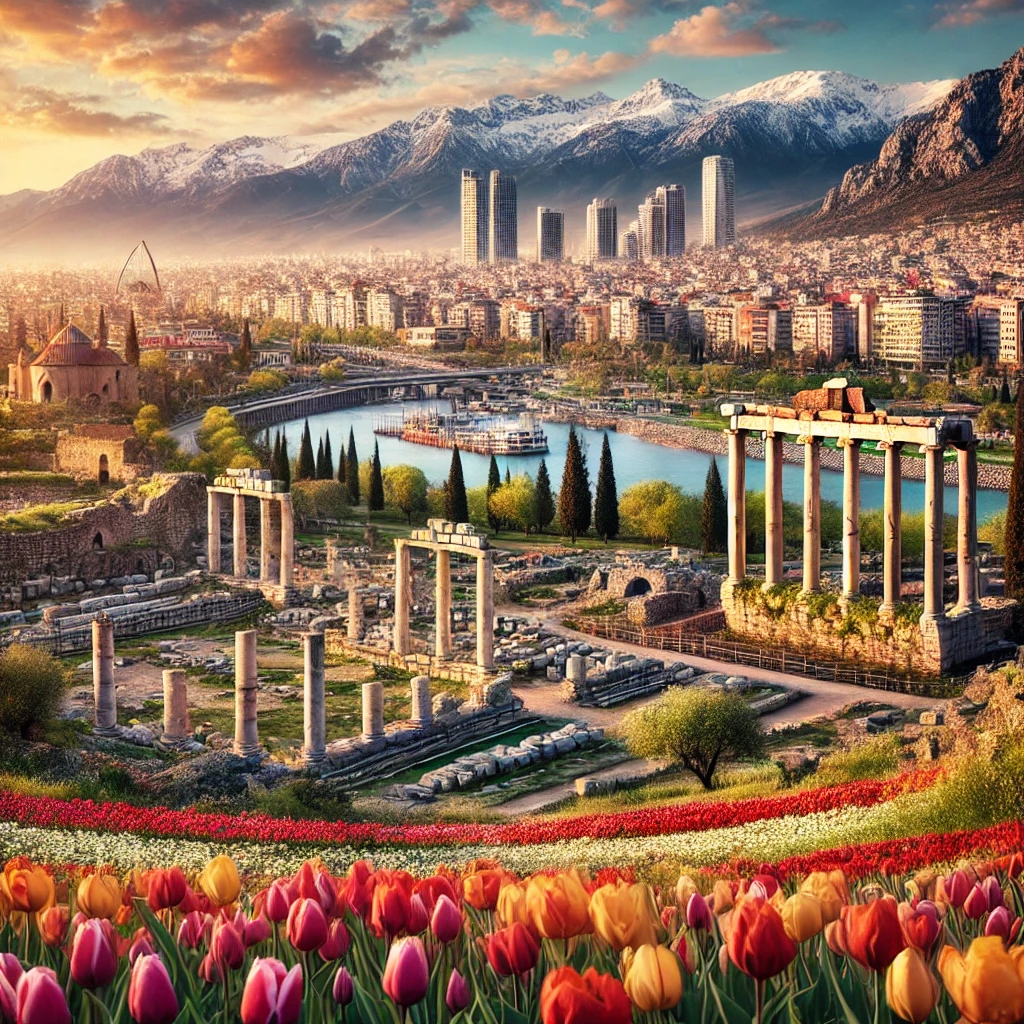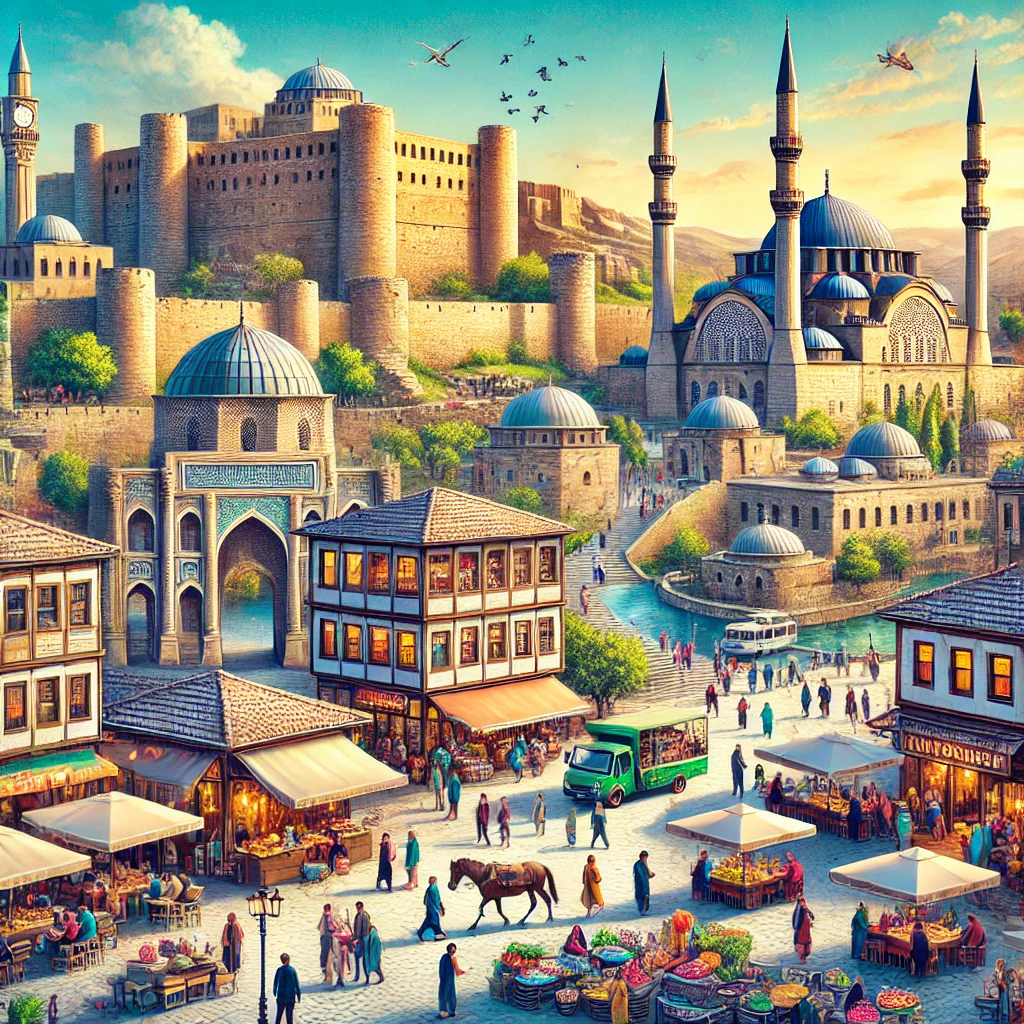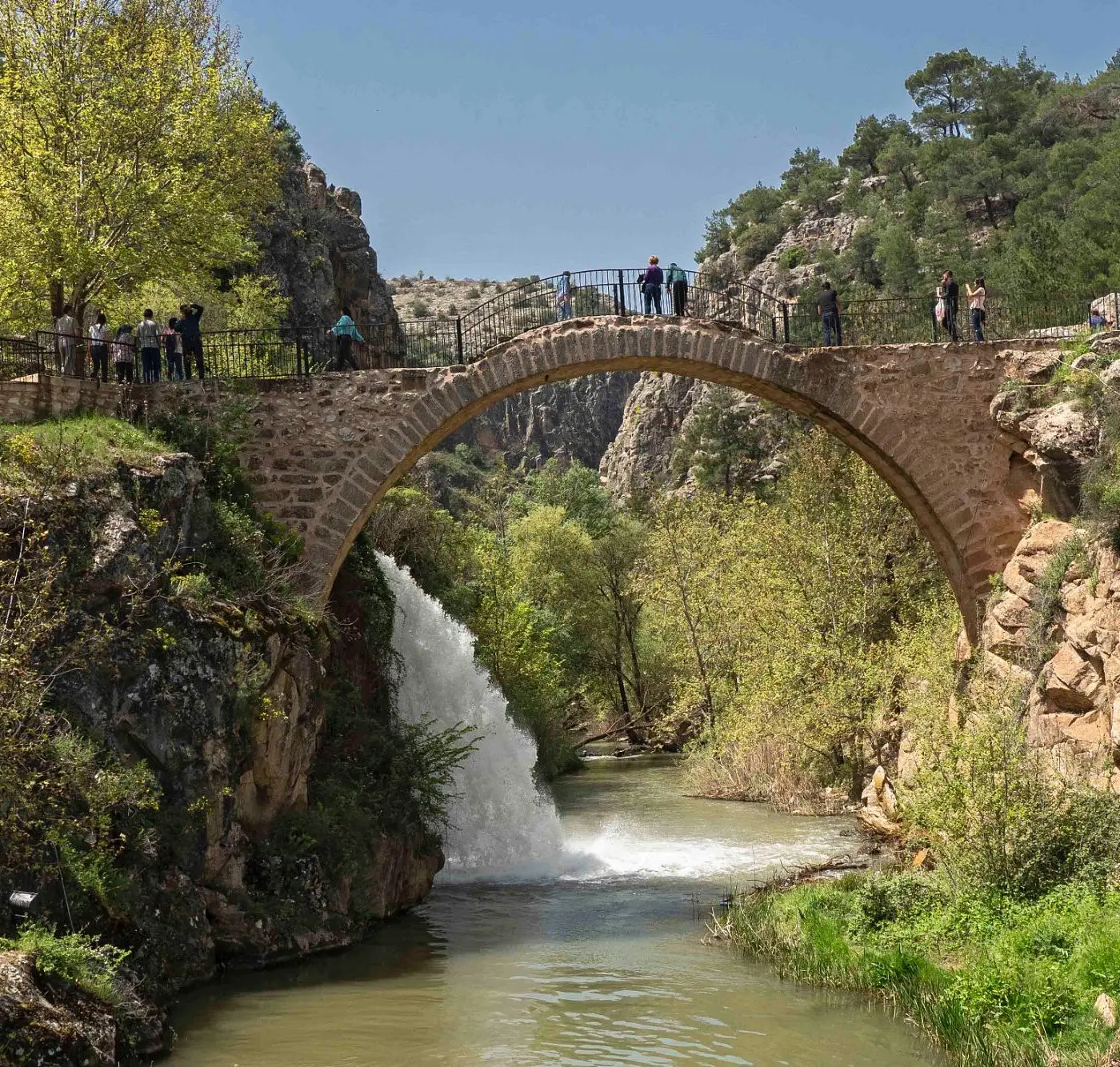


Visit Turkey
Explore Turkey, Embrace Adventure
No adress data
Facts About Turkey
Turkey, a country that spans two continents and boasts a rich tapestry of history, culture, and natural beauty, is a captivating destination for travelers. Whether you’re planning your first trip or are a seasoned visitor, there’s always something new to learn about this fascinating nation. In this comprehensive guide, we’ll delve into various intriguing facts about Turkey, offering insights that will enhance your travel experience.
A Land Bridging Two Continents
Geographical Significance
Turkey is uniquely positioned, with part of its territory in southeastern Europe and the majority in western Asia. The Bosphorus Strait, which runs through Istanbul, separates the European and Asian parts of the country. This strategic location has made Turkey a cultural and historical crossroads for millennia.
Rich Historical Heritage
Ancient Civilizations
Turkey is home to some of the world’s oldest known human settlements. The ancient city of Troy, made famous by Homer’s Iliad, and the Neolithic site of Göbekli Tepe, which dates back to 9600 BC, are just two examples of its ancient heritage.
Ottoman Empire
The Ottoman Empire, one of the longest-lasting empires in history, originated in Turkey. The Ottomans ruled vast territories across Europe, Asia, and Africa from 1299 until the establishment of the Republic of Turkey in 1923.
Cultural Diversity
Ethnic and Religious Composition
Turkey’s population is a mosaic of ethnic groups, including Turks, Kurds, Armenians, Greeks, and others. While the majority of the population is Muslim, Turkey is also home to various religious communities, including Christians and Jews, contributing to its rich cultural tapestry.
Language
Turkish is the official language, but you’ll also hear Kurdish, Arabic, and other languages, especially in regions with diverse ethnic communities. English is widely spoken in tourist areas, making travel easier for international visitors.
Stunning Landscapes
Diverse Geographies
From the pristine beaches of the Aegean and Mediterranean coasts to the rugged mountains of Eastern Anatolia, Turkey’s landscapes are incredibly diverse. The fairy chimneys of Cappadocia and the travertine terraces of Pamukkale are among its unique natural wonders.
National Parks
Turkey boasts numerous national parks that protect its natural heritage and offer outdoor recreation. Yedigöller National Park, known for its seven lakes, and Mount Nemrut National Park, with its colossal statues, are must-visit destinations for nature enthusiasts.
Delicious Cuisine
Traditional Dishes
Turkish cuisine is renowned for its rich flavors and variety. Signature dishes include kebabs, mezes (small appetizers), and baklava (a sweet pastry). Turkish breakfast, with its array of cheeses, olives, eggs, and fresh bread, is a delightful way to start the day.
Street Food
Street food is an integral part of Turkish culture. Don’t miss out on simit (sesame-coated bread rings), döner kebab, and gözleme (a savory flatbread with various fillings). These affordable and delicious options offer a taste of everyday life in Turkey.
Architectural Marvels
Historical Monuments
Turkey’s architectural heritage spans several millennia. The Hagia Sophia in Istanbul, originally a cathedral, later a mosque, and now a museum, showcases Byzantine architecture at its finest. The ancient city of Ephesus, with its well-preserved ruins, provides a glimpse into Greco-Roman civilization.
Modern Architecture
Contemporary Turkish architecture is equally impressive. The Istanbul Sapphire, one of the tallest buildings in Turkey, and the futuristic Zorlu Center are examples of modern design blending with historical context.
Festivals and Celebrations
Cultural Festivals
Turkey hosts numerous cultural festivals throughout the year. The International Istanbul Film Festival, the Aspendos International Opera and Ballet Festival, and the Whirling Dervishes Festival in Konya are just a few events that celebrate the country’s artistic and cultural heritage.
National Holidays
Turkey’s national holidays, such as Republic Day on October 29 and National Sovereignty and Children’s Day on April 23, are marked by vibrant celebrations, including parades, concerts, and public gatherings.
Vibrant Cities
Istanbul
Istanbul, Turkey’s largest city, is a vibrant metropolis that straddles Europe and Asia. Its rich history, bustling bazaars, and stunning landmarks like the Blue Mosque and Topkapi Palace make it a top destination for travelers.
Ankara
Ankara, the capital city, is the political and administrative heart of Turkey. Visit Anıtkabir, the mausoleum of Mustafa Kemal Atatürk, the founder of modern Turkey, and explore the Museum of Anatolian Civilizations for a deep dive into the region’s history.
Unique Experiences
Hot Air Ballooning in Cappadocia
Cappadocia’s unique landscape, characterized by fairy chimneys and cave dwellings, is best appreciated from a hot air balloon. The panoramic views at sunrise create a magical experience that’s hard to match.
Turkish Baths
A visit to a Turkish bath, or hammam, is a quintessential part of the Turkish experience. These traditional baths offer a relaxing and rejuvenating ritual that has been practiced for centuries.
Economic Landscape
Growing Economy
Turkey has one of the world’s largest economies, characterized by a diverse industrial base. Key sectors include automotive, textiles, electronics, and tourism. The country’s strategic location makes it a vital trade hub between Europe and Asia.
Tourism Industry
Tourism plays a crucial role in Turkey’s economy. With its rich history, diverse landscapes, and vibrant culture, Turkey attracts millions of tourists each year. Popular destinations include Istanbul, Antalya, and Cappadocia.
Educational Opportunities
Universities
Turkey is home to numerous prestigious universities, such as Boğaziçi University, Middle East Technical University (METU), and Koç University. These institutions attract students from around the world, offering high-quality education and research opportunities.
Study Abroad Programs
Turkey’s unique blend of East and West makes it an attractive destination for study abroad programs. Students can immerse themselves in the country’s rich culture while gaining a global perspective on their education.
Practical Travel Tips
Best Time to Visit
The best time to visit Turkey depends on the regions you plan to explore. Spring (April to June) and autumn (September to November) offer mild temperatures and fewer crowds, making them ideal for sightseeing and outdoor activities.
Visa and Entry Requirements
Most travelers need a visa to enter Turkey. You can apply for an e-Visa online before your trip. Check the latest entry requirements and health guidelines to ensure a smooth travel experience.
Safety and Health
Staying Safe
Turkey is generally a safe destination for travelers, but it’s always wise to stay informed about current events and follow local advice. Be cautious with your belongings in crowded areas and use reputable transportation services.
Health Precautions
Ensure you have travel insurance that covers health care. Drink bottled water and follow standard health precautions to avoid common travel ailments. In case of emergencies, Turkey has a well-developed healthcare system, particularly in urban areas.
Sustainable Travel
Eco-Friendly Practices
Turkey is increasingly focusing on sustainable tourism. Many hotels and tour operators are adopting eco-friendly practices, such as using renewable energy, reducing waste, and supporting local communities.
National Parks and Conservation
Visiting Turkey’s national parks and supporting conservation efforts helps protect the country’s natural heritage. Engage in responsible tourism practices, such as respecting wildlife and following park guidelines.
Fascinating Trivia
Tulip Origins
Many people associate tulips with the Netherlands, but they were first cultivated in Turkey. The tulip holds significant cultural importance and was a symbol of wealth and prestige during the Ottoman Empire.
Santa Claus
The legendary figure of Santa Claus, or St. Nicholas, originates from Turkey. St. Nicholas was a 4th-century bishop from the town of Myra, in modern-day Demre.
Conclusion
Turkey is a land of contrasts and surprises, offering a rich blend of history, culture, natural beauty, and modernity. Whether you’re exploring ancient ruins, savoring delicious cuisine, or enjoying the vibrant nightlife, Turkey provides endless opportunities for discovery and adventure.
From its strategic geographical location bridging two continents to its vibrant cultural heritage and diverse landscapes, Turkey is a destination that captivates the hearts of travelers. By understanding the various facets of this remarkable country, you can better appreciate its unique charm and make the most of your visit.
So pack your bags, prepare your itinerary, and get ready to embark on an unforgettable journey through Turkey. Whether you’re a history buff, a foodie, an adventurer, or simply a curious traveler, Turkey has something special to offer you. Enjoy the richness of its past, the vibrancy of its present, and the promise of its future as you explore all that this incredible country has to offer.
Common Questions
Be aware of potential fees for international transactions, which may include a withdrawal fee from your home bank and a fee from the Turkish ATM operator. Additionally, exchange rates may vary, so check with your bank for the most favorable rates.
Mersin, with its charming towns of Erdemli and Silifke, is often celebrated as one of Turkey’s most beautiful cities. Known for its breathtaking Mediterranean coastline, Mersin offers a mix of pristine beaches perfect for relaxation, swimming, and sunbathing. Beyond its unspoiled natural beauty, Mersin also boasts numerous beach resorts with top-notch facilities and a variety of water sports, making it a top destination for beach lovers and vacationers alike.
- Insert your debit or credit card into the ATM. Most ATMs in Turkey accept international cards such as Visa, MasterCard, and Cirrus.
- Choose your preferred language for the transaction. English is widely available.
- Enter your personal identification number (PIN) as prompted.
- Select the type of transaction you wish to perform. For withdrawing cash, choose the ‘Withdrawal’ option.
- Choose the currency (TRY, EUR, or USD) and enter the amount you wish to withdraw.
- Confirm the transaction and collect your cash, receipt, and card from the machine.
If you’re planning a trip to Turkey, staying connected with your mobile phone is essential. Here’s what you need to know about using your mobile phone in Turkey:
International GSM Coverage
Many international GSM operators provide coverage in Turkey, ensuring that you can use your mobile phone seamlessly. Before you travel, it’s a good idea to check with your mobile carrier about international roaming services.
Popular Local GSM Operators:
- Turkcell
- Avea
- Vodafone
Activating International Roaming
To use your current mobile phone number and plan in Turkey, you will need to activate the international roaming function. Contact your GSM operator to:
- Confirm that your phone will work in Turkey.
- Understand the costs associated with international roaming.
- Activate the international roaming service before you travel.
Obtaining a Local SIM Card
Alternatively, you can obtain a local SIM card upon arrival in Turkey. This option can be more cost-effective and provide better local rates for calls, texts, and data. Here’s how you can get started:
How to Get a Local SIM Card:
- Visit a Store: You can purchase a SIM card from official stores of Turkcell, Avea, or Vodafone. These stores are commonly found in airports, shopping malls, and city centers.
- Provide Identification: Be prepared to show your passport or another form of ID when purchasing a SIM card.
- Choose a Plan: Select a prepaid plan that suits your needs for calls, texts, and data.
Benefits of Using a Local SIM Card
- Cost Savings: Avoid high international roaming fees by using local rates.
- Local Number: Having a local Turkish phone number can be convenient for making reservations and contacting local services.
- Better Coverage: Local SIM cards often provide better network coverage and data speeds within Turkey.
Antalya is located on the Mediterranean Sea. This coastal city is situated along the Turkish Riviera, known for its stunning beaches and crystal-clear waters, making it a popular destination for tourists seeking sun, sea, and cultural experiences.
Yes, there may be daily withdrawal limits imposed by both your home bank and the ATM operator. It’s a good idea to check these limits in advance.
Discover Turkey now!
Tunceli
Tunceli, a city with a rich historical and cultural heritage, [...]
ancient city Tunceli, Ottoman Tunceli, travel Tunceli, Tunceli, Tunceli archaeological sites, Tunceli culture, Tunceli education, Tunceli festivals, Tunceli history, Tunceli landscapes, Tunceli local cuisine, Tunceli museums, Tunceli natural beauty, Tunceli tourism, Tunceli transport, Tunceli travel guide, Tunceli Turkey, visit Tunceli
Osmaniye
Osmaniye, a city situated on the eastern edge of the [...]
ancient city Osmaniye, Osmaniye, Osmaniye archaeological sites, Osmaniye culture, Osmaniye education, Osmaniye festivals, Osmaniye history, Osmaniye landscapes, Osmaniye local cuisine, Osmaniye museums, Osmaniye natural beauty, Osmaniye tourism, Osmaniye transport, Osmaniye travel guide, Osmaniye Turkey, Ottoman Osmaniye, travel Osmaniye, visit Osmaniye
Muş
Muş, a captivating city in eastern Turkey, is rich with [...]
ancient city Muş, Muş, Muş archaeological sites, Muş culture, Muş education, Muş festivals, Muş history, Muş landscapes, Muş local cuisine, Muş museums, Muş natural beauty, Muş tourism, Muş transport, Muş travel guide, Muş Turkey, Ottoman Muş, travel Muş, visit Muş
Diyarbakır
Diyarbakır, the largest Kurdish-majority city in Turkey, is an administrative [...]
ancient walls, culture, Diyarbakır, Diyarbakır attractions, Diyarbakır cuisine, Diyarbakır day trips, Diyarbakır museums, Diyarbakır natural wonders, Diyarbakır tourism, Diyarbakır travel guide, hidden gem, historical sites, historical sites in Diyarbakır, things to do in Diyarbakır, Tigris River, tourism, travel, travel to Diyarbakır, Turkey, Turkish baths in Diyarbakır, visiting Diyarbakır
Uşak
Welcome to Uşak, a captivating city nestled in the heart [...]
Uşak agricultural production, Uşak attractions, Uşak carpets, Uşak climate, Uşak cultural sites, Uşak economic history, Uşak geographical features, Uşak historical significance, Uşak history, Uşak industrial heritage, Uşak museums, Uşak natural beauty, Uşak tourism, Uşak travel, Uşak twin cities
